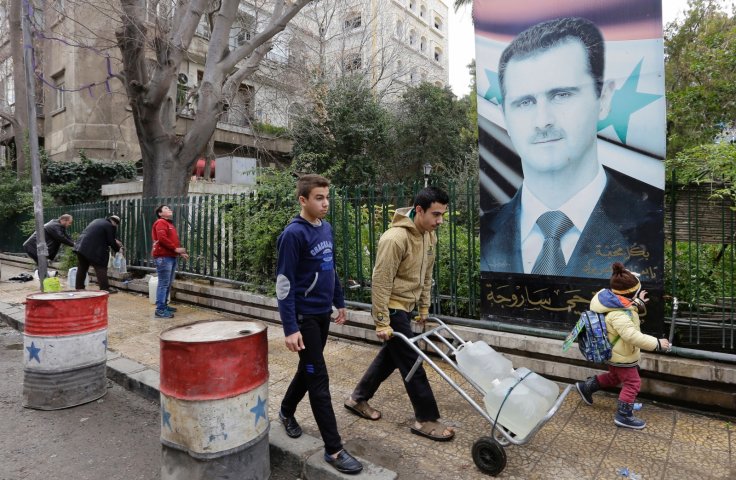Alwaght- Water is an essential element of living. Yet, deliberately and knowingly, extremist groups in both Syria and Iraq have weaponized water against civilians by cutting off water supplies. The world, meanwhile, particularly those who have had a hand in the expansion of ISIS and its likes, have been indifferent to this blockade.
Parched Damascus
Recently, a water crisis has hit the Syrian capital Damascus as a result of militant sabotage efforts. On December 22, water stopped flowing into the city after the so-called ‘rebels” fighting against the Syrian government, damaged the infrastructure around a spring that is a source of water.
Life without water has been extremely difficult for Syrians whose taps have been dry for weeks. Whatever thin resources they find, they are stretching. Notably, there are around 5.5 million Syrians living in Damascus.
Clearly, cutting off water from the capital, which is under government control, is a means to an end. These terrorist groups are attempting to pressure the government and the Syrian people into caving in. Denying them something as essential as water for the continuity of life, is seen as a powerful tool. However, despite the immense disadvantages of this crisis, those who did not surrender at the sight of blood will not kneel for water.
Mosul’s Thirst
ISIS terrorists in Iraq are also playing this card against civilians living in areas recaptured by the Iraqi army in an ongoing operation to complete recapture Mosul.
Earlier this week, ISIS militants, who maintain control of the city’s water stations, cut off the water supply to thousands of residents in liberated areas of Mosul.
The recent Mosul operations have been a setback to their terrorist expansionist aspirations in northern Iraq where the army is continuing to make gains against them.
Denying residents access to water is clearly intended to accomplish two objectives at the very least: to avenge their losses by making civilians suffer; and to attempt to capitalize on this suffering to find a way back into the liberated areas.
Inhumanity
On November 27, 2002, the United Nations Committee on Economic, Cultural and Social Rights, Environment News Service enshrined water for health as a human right.
“Water is fundamental for life and health. The human right to water is indispensable for leading a healthy life in human dignity. It is a pre-requisite to the realization of all other human rights,” the General Comment stated.
Safe drinking water and sanitation for personal and domestic use, hence, are essential human rights that are being denied to Iraqi and Syrian civilians by groups claiming to fight for freedom and human rights on the one hand, and allegedly Islamic beliefs, on the other.
Cutting off water from civilians already struggling to survive bloodshed, violence, and poverty is an inhumane strategy. These militants are blatantly using civilians as pawns in a battle for territorial control and power, disregarding their well-being and rights.
At the same time, this kind of inhumane strategy is expected from groups that have massacred hundreds of thousands in cold blood, injured and displaced many others, and destroyed structures of both modern and ancient civilizations.
International Indifference
“The so-called Islamic State (ISIS) has increasingly used water as a weapon in order to further its political and military aims in Syria and Iraq. In this water-scarce region, IS has retained water and cut off crucial supplies, flooded large areas as well as contaminated resource,” writes Tobias von Lossow in an article published on the International Spectator.
Yet, the question today is not whether water is being weaponized in Syria and Iraq or not. The reservation is rather a consequence of international indifference toward the issue in spite of the gravity of the situation.
This unresponsiveness, which has not bred any form of tangible assistance, may also be to blame for the problem at large. Had the international community intended to help Syria and Iraq out of their predicaments, perhaps this water extortion crisis would not be playing out before the eyes of the world.



























